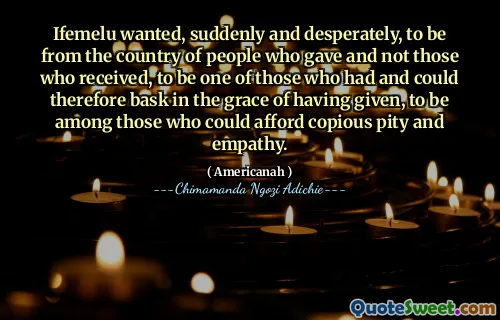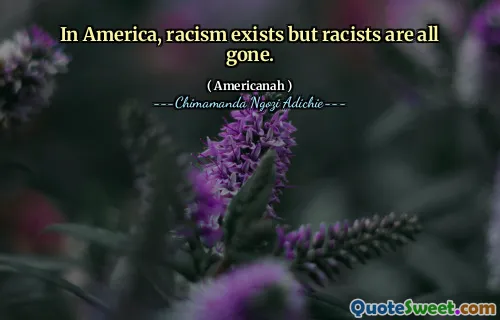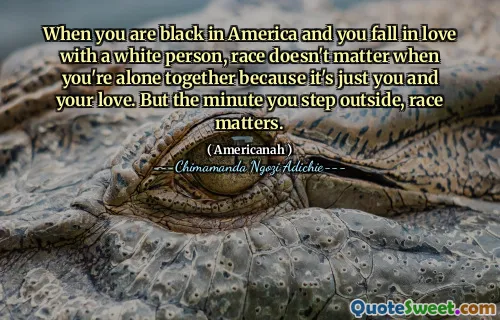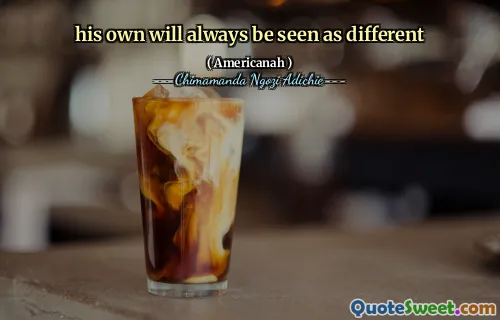
In America, racism exists but racists are all gone.
This quote presents a paradoxical statement that encourages deeper reflection on the nature of racism and societal change. It suggests that while the tangible manifestation of racists—individuals overtly expressing racist beliefs—may have disappeared from the public eye, the underlying prejudice and systemic inequalities persist. This scenario resonates with the idea that racism has evolved beyond blatant bigotry to become ingrained within societal structures and implicit biases. The notion that racists are 'all gone' might point to a superficial eradication of overt discriminatory individuals, yet the lingering presence of racial disparities indicates that the problem is far from resolved.
From a broader societal perspective, this highlights how sometimes progress is superficial or incomplete, with core issues remaining unresolved beneath the surface. It raises questions about our understanding of change—whether removing visible symbols of racism suffices or if the more insidious, systemic aspects require ongoing effort and introspection. It also underscores the importance of understanding that racial issues are embedded in policies, cultural norms, and unconscious biases that are harder to identify and dismantle.
Reflecting on this, one might consider the importance of continued activism, education, and policy reform, emphasizing that the absence of openly racist individuals doesn't equate to a society free of racial injustice. Achieving true equality demands addressing these deeper structures of bias and privilege. This quote, while provocative, ultimately calls for vigilance in recognizing that the fight against racism is ongoing and multifaceted, necessitating persistent effort even when overt hostility appears to diminish.





